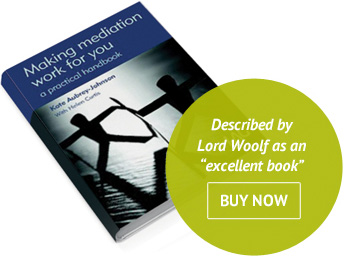BLOG
CMC Annual Conference: ‘Meeting Needs, Making Life Better’
June 1, 2016
The Christchurch experience made graphic sense of this year’s title for the annual Civil Mediation Council (‘CMC’) conference. Geoff Sharpe from New Zealand set out the role of mediation following the Christchurch earthquake in 2010. Disputes had arisen between home owners and insurers and focused on whether property would be restored or completely rebuilt. Undoubtedly the aftermath of the earthquake was deeply distressing for those affected and being able to resolve disputes via mediation was preferable to prolonging the agony in litigation.
The message from Christchurch is one which many at the conference wish was more readily heard, although in less dramatic circumstances. It was acknowledged that there are plenty of people in business, organisations and communities for whom mediation is still not yet well-known. The CMC confirmed it is trying to live up to its aim which is ‘to be the voice of mediation to whom the Government turns’. Part of that aim is an endeavour to regulate the mediation profession. This is in spite of the Centre for Effective Dispute Resolution (CEDR) report which found ‘little support for detailed regulation of mediation practice’ amongst mediators and providers.
Bill Wood is a member of the Civil Justice Council’s working party on mediation, considering its wider use by the legal system. He referred to a Department of Business Innovation and Skills paper calling for a ‘structured regulatory system’ and an EU review of mediation practice including standards and compulsion. Perhaps this is on the assumption that if and when regulated, mediation would command more confidence from would-be users. Whether those objectives will still be in focus after June 23rd remains to be seen.
The CEDR survey provided a picture of an ‘average’ mediator being middle-aged (57), white, male and probably a lawyer with an average one day fee of £1,545 within a range between £500 – £4000.
The consumers of mediation cited personal recommendation, availability, fee levels and professional reputation (when choosing lawyers) as factors which influence their choice of mediator. Some also expressed a preference for mediation which was more evaluative than facilitative. This is a recurring debate and possibly best met with an acceptance to use an approach which places the parties at the centre and a commitment to find a style of mediation which is most suitable to the dispute they are trying to resolve.
The aspirants at the CMC conference know that progress takes time. It is noteworthy that the high-water mark of mediation in the court system were the ADR enabling provisions in the Civil Procedure Rules (from 1999). Mediation is more well-known now than in 1999 but there is clearly a way to go.

